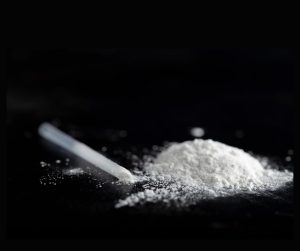Children, young people and families urged to be aware of ketamine risks
Families and teachers are being encouraged to start supportive conversations with young people following a rapid increase in those admitted to hospital after using class B drug, ketamine.

A batch of ketamine which may have been mixed with other toxins is for sale in Shrewsbury
The recent surge coincides with a spell of hot weather and the end of exam season for many young people, with gatherings and celebrations thought to have led to the increase. In particular, this has been noted at The Quarry, Doctor’s Field, The Mount in Shrewsbury and other riverside locations, prompting additional concerns about river safety. Some locations could be difficult for emergency services to access.
It is important that families know where their children and young people are and who they are with, and are able to suggest safer alternatives if they are concerned.
Local drug and alcohol support organisation, We Are With You, have also raised concerns about a contaminated batch of ketamine that is in circulation at the moment, which may have been mixed with other toxin(s).
Ketamine is a powerful anaesthetic and has become increasingly popular as a recreational drug. It looks like a grainy, white powder and reduces sensations in the body, putting users at risk of injury.
At high doses, ketamine can cause people to hallucinate and become very confused, make it difficult to use arms and legs, and cause problems to the heart.
Regular or long-term use can cause flashbacks and memory loss, as well as making existing mental health problems worse. It can also lead to damage to organs such as the bladder and liver.
Ketamine can be fatal in the case of overdose or if it is mixed with other substances including alcohol.
Graham McGraw, contracts manager at Shropshire Council’s drug and alcohol support partners, We Are With You, said:-
“We know that ketamine has become a popular drug amongst young people, both nationally and locally in Shropshire. Our service is there to provide free and confidential advice to anybody who is concerned about their own substance use or somebody else’s.
“If you are a parent, carer or professional who works with young people, we would always recommend that you choose a good time to have a healthy and positive conversation without judgement. It is important that children and young people are fully informed of the risks and also that they have a safe person to talk to for support.
“The effects of ketamine can come on quickly, so we would recommend that young people know how to look out for their friends and have a plan to get help if they need it.”
Kirstie Hurst-Knight, Shropshire Council’s Cabinet member for children and education, said:-
“This is a concerning issue for young people, parents and carers, and we support the advice of our partners to be aware of the risks and for parents to have a conversation with their young people this weekend, ahead of any celebrations.
“If you have teenagers and young people at home, make sure that they know they can talk to you honestly and openly so that you can help them to be safe.”
In an emergency including a risk to life and unresponsiveness, call 999.
If you need more general help and support:
- Contact your GP
- Call NHS 111
- Contact your mental health crisis team (if you have one)
- Call Samaritans free on 116 123 or email jo@samaritans.org
- Visit We Are With You Shropshire’s website for local support information and live web chat: Shropshire – With You (wearewithyou.org.uk) or call 01743 294700
More information about ketamine: Ketamine | Effects of Ketamine | FRANK (talktofrank.com)

